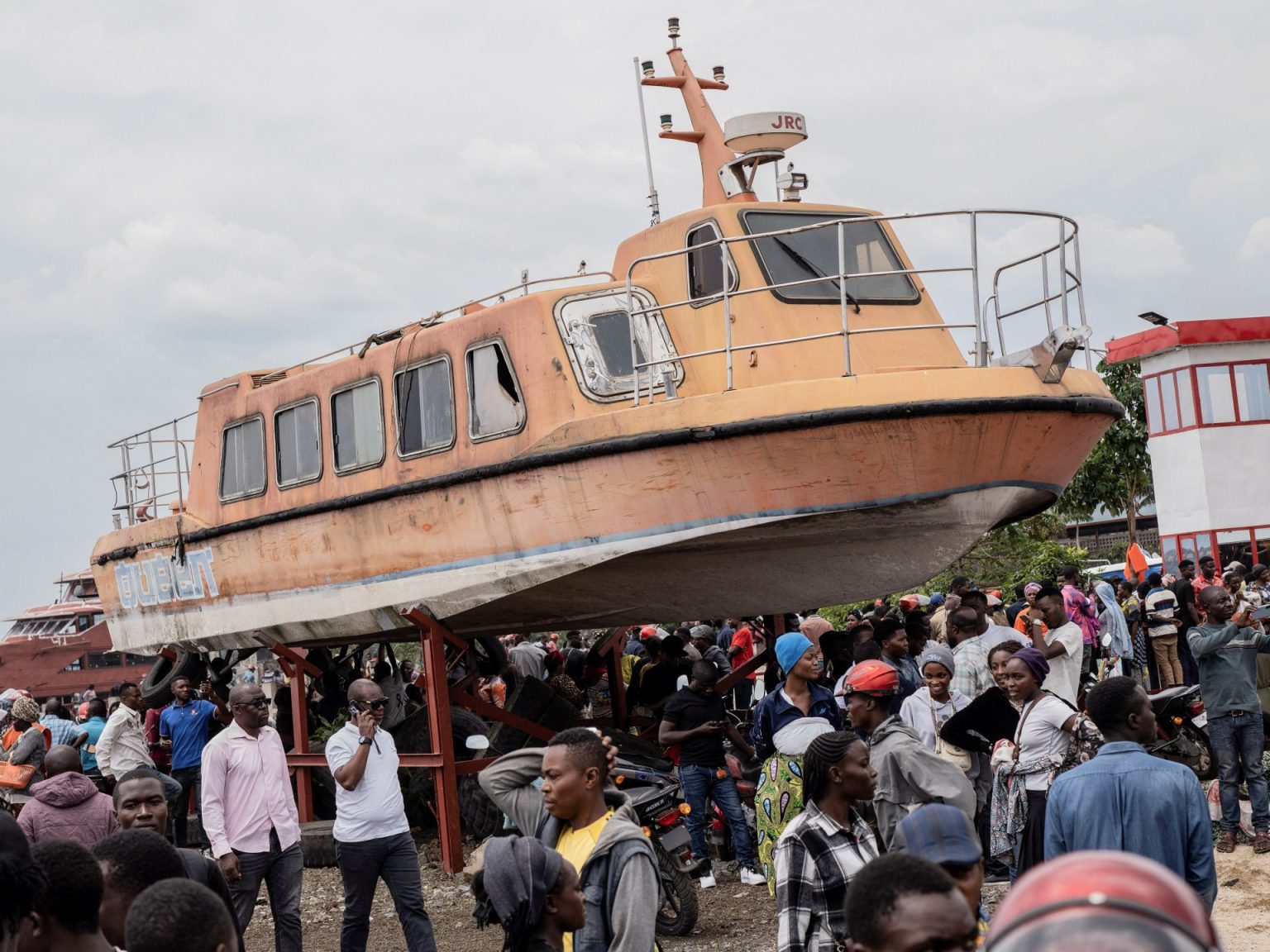At least 78 people have died after a boat carrying 278 passengers capsized in Lake Kivu in the eastern Democratic Republic of the Congo. The boat sank only 100 meters from its destination at the shore of Goma, and at least 58 people were rescued. Governor of South Kivu province Jean Jacques Purisi stated that it would take at least three days to determine the exact number of casualties, as not all bodies have been recovered yet. The boat had originated from the town of Minova in South Kivu province and was on its way to Goma. The incident highlights the dangers faced by those who choose to travel by boat across Lake Kivu due to ongoing fighting between Congolese government forces and M23 rebels in the region.
Residents in Goma expressed frustration over road closures in the area, leading an increasing number of people to opt for boat travel to cross the northern tip of Lake Kivu. This has resulted in overcrowded vessels and heightened risks for those who choose to make the journey by water. Al Jazeera’s correspondents on the ground reported that those who were rescued from the sinking boat were receiving medical treatment. The survivor accounts painted a grim picture of the harrowing ordeal, with witnesses describing people drowning around them and struggling to stay afloat in the lake. One survivor, Alfani Buroko Byamungu, recounted seeing women and children sinking, highlighting the devastating impact of the tragedy.
The loss of life in the boat sinking incident has been attributed to the ongoing war in the region, with one Goma resident, Mushagulua Bienfait, blaming the conflict for the tragedy. He lamented the lack of effort to clear the roads and ensure safe travel for residents, leading to situations where dangerous alternatives like overcrowded boat travel are chosen. The conflict in the eastern DRC, particularly with the M23 rebel group’s offensive, has created instability and insecurity, forcing residents to navigate perilous conditions in their daily lives. The increased military presence and proliferation of armed groups in the area have further exacerbated the challenges faced by the local population.
The boat sinking in Lake Kivu has sparked concerns about the safety and security of water travel in the region, prompting calls for greater precautions and measures to prevent such tragedies in the future. The incident serves as a reminder of the risks faced by those who rely on boat transportation, especially in conflict-affected areas where land travel may be restricted or unsafe. The Congolese authorities are working to determine the full extent of the casualties and provide support to the survivors and families of the victims. Efforts are also being made to address the underlying causes of such incidents, including the impact of ongoing conflicts on the daily lives and safety of residents in the region.
As the investigation into the boat sinking continues and the recovery efforts proceed, the authorities are bracing for a potential rise in the death toll as more bodies are discovered. The tragic incident has once again highlighted the humanitarian crisis in the eastern DRC, where conflict, displacement, and insecurity continue to impact the lives of millions of people. The international community has called for urgent action to address the root causes of the conflict and provide humanitarian assistance to those affected by the ongoing crisis. In the midst of these challenges, the resilience and courage of the survivors and affected communities in the DRC stand as a testament to their strength in the face of adversity.


